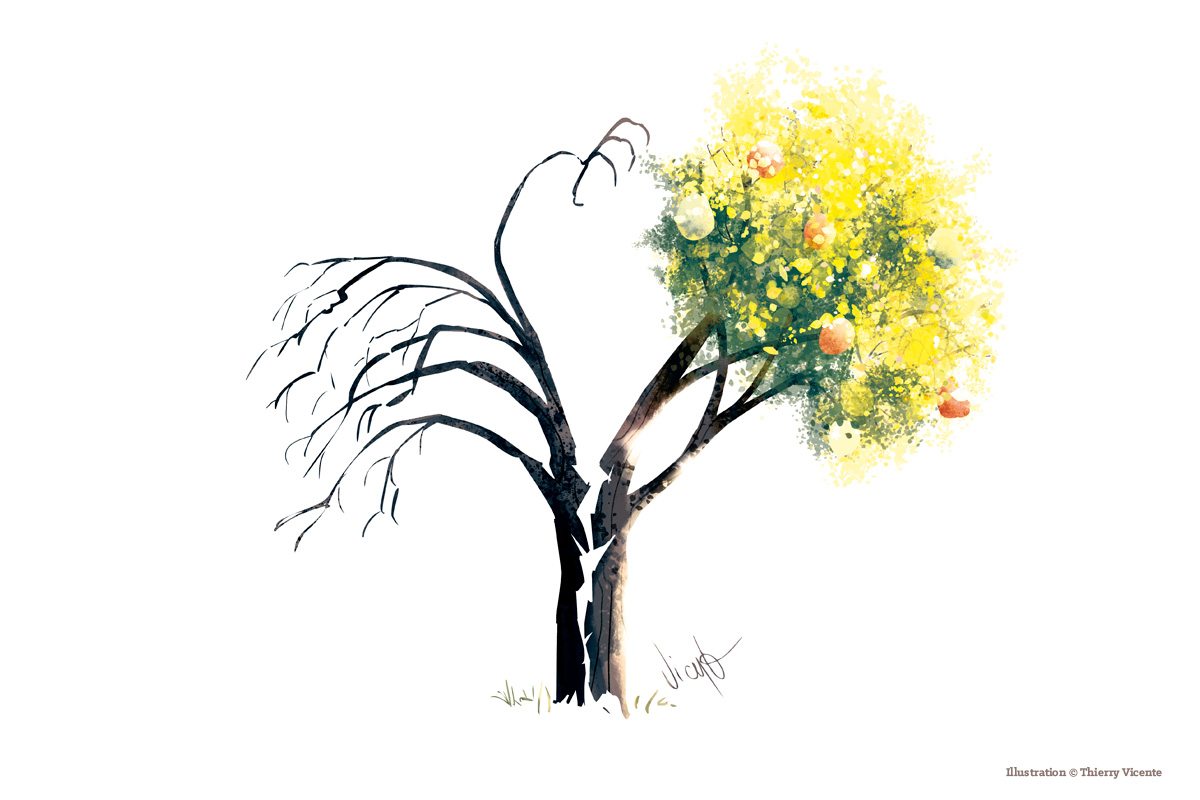[LUM#15] The breeding ground of conflict
Economist Raphaël Soubeyran takes a different look at the violence sweeping the African continent, studying the inequality of access to fertile land as a factor in conflict in sub-Saharan Africa.

Independence, power or border wars, identity or secessionist conflicts, sub-state or local fighting... The typology of violence is vast when it comes to exploring the multiplicity of conflicts dotting the globe, including the African continent, the scene of many events. But how should we view them? Ethnic tensions and differences in wealth between countries are often put forward as the main causes, but they don't explain everything ... "Conflicts are always the result of different factors. Conflicts always stem from multiple, complex causes," analyzes Raphaël Soubeyran.
Together with his colleagues Nicolas Berman and Mathieu Couttenier, the economist looked into a cause that is still underestimated: inequality of access to fertile land, an unsuspected breeding ground for violence. " We studied the impact of agricultural soil productivity on conflicts in sub-Saharan Africa, over a period from 1997 to 2013", explains the director of the Montpellier Center for Environmental Economics (CEE-M)*. This factor is all the more important in this part of the world, where 62% of the population lived in rural areas in 2015. Their ground-breaking analysis suggests that the greater the differences in fertility between lands, the greater the risk of local violence.
Focus on fertilizers
How have economists analyzed this complex relationship ? Studying how differences in land fertility affect conflict is not straightforward, confides Raphaël Soubeyran, who points to the scarcity of data, but also to the fact that "soil quality can be correlated with other local characteristics that are also sources of conflict". The authors therefore opted for an indirect method: "we combined information on natural soil fertility and locally produced agricultural goods with data on global price variations of fertilizer components".
Why fertilizers? Because these products have different effects depending on the natural fertility of the soil. " When fertilizers are more expensive, the difference in yield between naturally fertile land and less fertile land will be greater", stresses the economist. And these yield differences are themselves a source of potential conflict. " Variations in world fertilizer prices can therefore be used to study the impact of an increase in inequalities in soil fertility on local conflicts".
Game theory
Conflict analysis is no mean feat, and is the subject of much work in the field of economics. To carry out their study, the researchers used a model based on what is known as game theory, which studies situations where individuals make decisions. In our study, individuals have a choice between two options: working their land to generate agricultural income, or entering into conflict with their neighbor to try to appropriate his land," explains the director of CEE-M. " If they opt for the second choice, they run the risk of losing their own agricultural production, which will have been abandoned in favour of the conflicting activity.
This is where differences in fertility come into play: when one's own income from farming falls much further than one's neighbor's income, working one's own land is less profitable. " So entering into conflict with a neighbor to get his hands on his production - from more fertile land - becomes a choice that can be described as profitable," explains Raphaël Soubeyran.
Land reform
And the more heterogeneous the soil quality, the greater the effect, particularly in highly agricultural regions. " Our estimates suggest that, in regions with highly disparate soil quality, when fertilizer prices rise, the probability of conflict increases by 9.6%, compared with 5.9% for less heterogeneous land". Inequality of access to fertile land is thus a non-negligible factor in conflict.
And can therefore represent a lever to guard against future tensions, which are bound to multiply in a context where global warming and increasing drought will inevitably affect land fertility. "These new data should be taken into account in agrarian reforms to redistribute land to those who cultivate it. Redistribution policy should take soil fertility into account at the time of sharing," recommends Raphaël Soubeyran. So that these lands no longer give rise to conflicts.
UM podcasts are now available on your favorite platforms (Spotify, Deezer, Apple podcasts, Amazon Music...).
*Center d'Economie de l'Environnement - Montpellier - CEE-M (UM - CNRS - INRAE - Institut Agro)